Over the years I’ve written three novels about the American Revolution.
The Fighting Ground (1884)
Sophia’s War (2013
Loyalty (2022)
Loyalty will be published in early February.
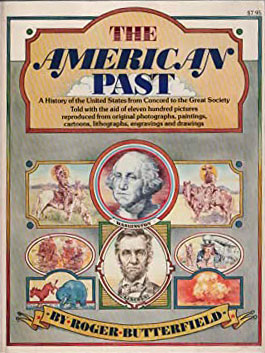 I believe I developed an early interest in the period when (l947) into my childhood home—I was ten years old—came a book titled The American Past: A History of the United States from Concord to Hiroshima, 1775–1945, by Roger Butterfield. This was a lavishly (and beautifully) illustrated volume—the first of its kind. The subtitle reads; “… told with the aid of a thousand pictures. Reproduced from original photographs, paintings, cartoons, lithographs, engravings, and drawing, especially selected and arranged to illuminate and illustrated the politics, personalities, war, and peaceful progress of America and its people.”
I believe I developed an early interest in the period when (l947) into my childhood home—I was ten years old—came a book titled The American Past: A History of the United States from Concord to Hiroshima, 1775–1945, by Roger Butterfield. This was a lavishly (and beautifully) illustrated volume—the first of its kind. The subtitle reads; “… told with the aid of a thousand pictures. Reproduced from original photographs, paintings, cartoons, lithographs, engravings, and drawing, especially selected and arranged to illuminate and illustrated the politics, personalities, war, and peaceful progress of America and its people.”
The kid that was me was entranced by the book. I went over it again and again. I’m sure I didn’t have the skill to read it all (much less understand it all), but it was enough to peruse the illustrations and know what they were. I have no doubt my knowledge of American History was shaped by that book.
I own that same book. It still sits on my shelves.
You’ll note that the book begins with the fighting at Concord, Massachusetts. It’s no accident that the battle of Concord is a central part of Loyalty.
The book did more than introduce me to American history. It gave me an interest in history.
When I was in college, already determined to be a writer, my goal was to be a playwright. My very first published work was a play I wrote when at the University of Wisconsin, the subject of that play being, yes, the American Revolution. No surprise, at UW, I majored in Theatre. But in fact, I had a double major. The other field of study; History.
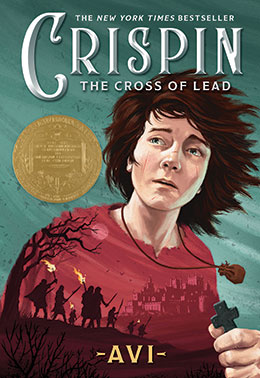
When only 21 years old—a recent college graduate—I actually had serious interest in a Broadway production of a play I wrote. I hasten to say it was never produced. But dealing with an aspect of European history, it touched on some of the same themes—and time period—as my Newbery book, Crispin: the Cross of Lead.
I did have an off-Broadway showcase production of another of my plays. Again, it was about the American revolution. The war was successful; my play was not.
But when I won the O’Dell Award for the best historical novel, it was for The Fighting Ground, yet again, about the American Revolution.
Over the years I’ve published some eighty-four works. Loyalty will be number eighty-four. Some forty or more of those publications are historical fiction. Later this year I shall publish City of Magic, set in Renaissance Venice.
Why the fascination with history? There is the obvious: history provides great stories. Not dates and battles, but human stories.
As for our War for Independence—and what followed—its successes and failures—it is central to our history, culture, and idealism. It was a major event in world history, with a vast impact.
But—it is not a simple story. The more you learn about it, the more complex and interesting it becomes. Much of that complexity is woven into the fabric of American society with which we engage and wrestle today. I have always found that complexity, its ideals, its many contradictions, and its heroic and failing moments fascinating.
I’ll write more about Loyalty in my next post.
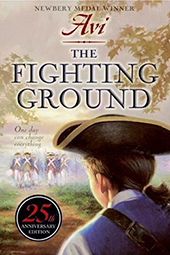
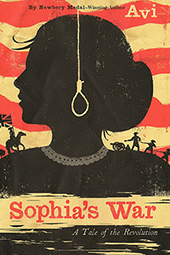
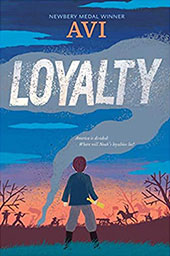
4 thoughts on “Writing historical fiction”
“Human stories.” Love this. I wrote the history book about the Faribault Woolen Mill and discovered just that. Yes, “history provides great stories.” Thank you for your historical fiction.
I wrote a historical fiction book set in renaissance Venice precisely because I could feel the mass of human stories begging to be told.
City of Magic. Any chance of Mangus or Fabrizio popping up 🙂
Thanks for sharing this. I wrote a play based on the life of George Washington and all of the fascinating people he communicated with. I found an old book with the original conversations and discussions in there, so I wanted to preserve them in a dramatic form. I agree that it was a very interesting time period.